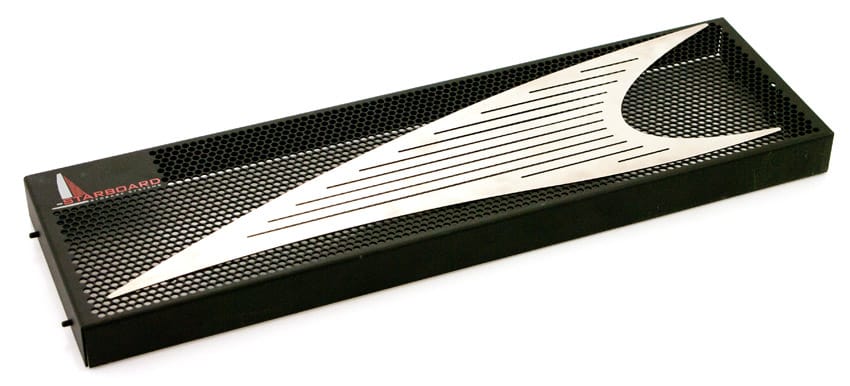Starbaord Storage, who sold hybrid storage arrays, has told StorageReview they're closing down. According to the company, "we have decided to cease operations, and have begun a process to wind down the business." Clearly not everyone in the hybrid storage business was going to survive, though Starboard certainly had hoped for a better outcome. The problem at its root is that many of these companies just aren't creating storage solutions that are terribly impressive over time. While the first movers added flash as a dynamic tier before most of the big guys, now everyone has a hybrid or flash-based tiered data solution and that feature on its own is regarded as table stakes for more advanced arrays. Starboard's issues run deeper unfortunately; their systems just weren't good enough.
Starbaord Storage, who sold hybrid storage arrays, has told StorageReview they're closing down. According to the company, "we have decided to cease operations, and have begun a process to wind down the business." Clearly not everyone in the hybrid storage business was going to survive, though Starboard certainly had hoped for a better outcome. The problem at its root is that many of these companies just aren't creating storage solutions that are terribly impressive over time. While the first movers added flash as a dynamic tier before most of the big guys, now everyone has a hybrid or flash-based tiered data solution and that feature on its own is regarded as table stakes for more advanced arrays. Starboard's issues run deeper unfortunately; their systems just weren't good enough.
We know the Starboard story from first-hand experience; we've had a configuration of the AC72-1 in our lab for nearly a year. What is obvious to anyone who follows the site regularly though, is that there's no review of the AC72-1 on StorageReview, even though we made its presence widely known via Twitter. The reason is simple; the system was never able to live up to the performance claims in some areas. This reality lead to an endless back and forth between the StorageReview lab and the engineering team at Starboard. The core issue was that our synthetic benchmark tests showed clear performance issues with the caching tier. Starboard offered countless testing tweaks over the past year to try to fix the problem to no avail. To be fair, Starboard sent a field support person to deploy the array in our lab, and they continued to work with us on software revisions and tuning, but in the end Starboard eventually lost the wind from their sails.
What does this mean for storage buyers?
The closing of Starboard highlights the obvious problem in going with a startup or otherwise small-scale storage vendor. The technology sounds promising and is priced a heck of a lot better than tier-1 hybrid arrays, luring many into offerings like Starboard's. Part of this price savings comes from reduced overhead due to smaller support teams and distribution networks, as well as a more budget-oriented approach to hardware design and R&D. As we noted in our Dell EqualLogic PS6110XS review, many of the sub-tier storage vendors include less flash or leverage consumer or light-enterprise SSDs whereas larger vendors can't afford taking those shortcuts. The small-scale vendors also often avoid validation. As we mentioned in the IOPS battle some of the flash array vendors are having, a core evaluation metric should be whether or not a vendor is open to independent testing and evaluation. To Starboard's credit they were, most other hybrid array vendors have not been so forthcoming.
There are many other vendors that play in this hybrid array space along with a variety of software-based solutions. They will all tout reports (paid for by the vendor) that show their arrays being spectacular for one use case or another, but few of them have opened up their systems for independent evaluation. Whether it's our lab or someone else's, buyers should do plenty of their own due diligence before making a buy. In many cases absent independent testing, this means aggressively vetting systems internally in a proof of concept stage. Vendor claims alone are insufficient for making decisions at this scale.


